Everyone agrees it is important for good clinicians to be empathetic—which is emphasized in medical school—but few agree on what it actually means, says Nicholas Fuller ’25. “This is especially true when it comes to clinical situations where there is a wide gulf between the experiences of the clinician and those of the patient.”
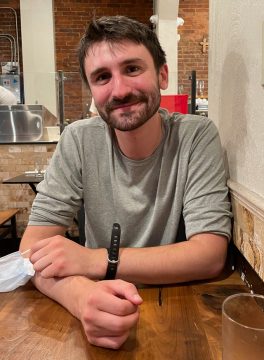
Fuller is one of five Swigart Ethics Fellows who are conducting yearlong ethics research projects to enhance either patient care or foster ethics in medical education in collaboration with their faculty mentor. He is investigating how empathy is defined and actualized in the practice of medicine. “My project aims to analyze the philosophical and scientific literature to create a unified definition of empathy and give recommendations on how to put that definition into practice,” he says.
“This fellowship is important to me because it gives me the opportunity and funding to explore a question that has been on my mind for a very long time, and one that I think is of central importance to educating future physicians, myself included, on how to actually be empathetic.”
In addition to Fuller, this year’s fellows include:
Derek Colaizzo ’25
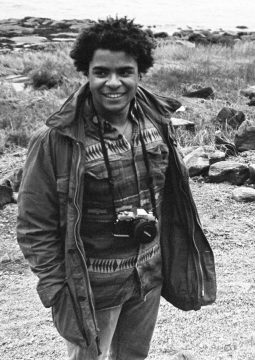
Faculty mentor Bruce Vrooman, MD
“Investigate the Ethics of Opioid Prescription at DHMC Health System”
Colaizzo’s project is about ethics of opioid prescription and clinician attitudes because of stricter guidelines by both the CDC and hospitals. He seeks to answer whether an overcorrection has hurt patients because of clinicians not wanting to be perceived as someone who overprescribes.
Marek Svoboda, PhD, Geisel ’24
Faculty mentor Mary Beth Dinulos, MD
“The Ethics of Widely Accessible Genetic Testing and Interventions in the Era of Precision Medicine”
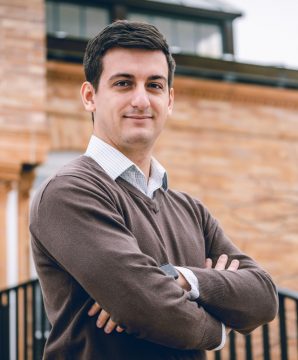
The recent advancements in genomic sequencing and the computational approaches to analyze the large datasets they produce have finally ushered in the era of precision medicine. While these new technologies promise unprecedented opportunities in both biomedical research and clinical practice, they also present novel ethical dilemmas with practical implications for patient care—including information ownership, decision-making delegation, or the boundary between a treatment and an enhancement. The question of “What can we do?” becomes “What should we do?”
“The goal of our project is to review the present capabilities in genetic testing and treatment, investigate the public opinion on the ethical utilization of these technologies, and finally compare these findings to the current legal policies in the United States and abroad, identifying the points of disconnect between these domains,” Svboda explains.
“This fellowship is a great opportunity to dive deep into a topic in medical ethics under the mentorship of a Geisel faculty member with advanced expertise on the subject. It is also enriching to share ideas with other concurrent fellows and to hear what they are currently working on.”
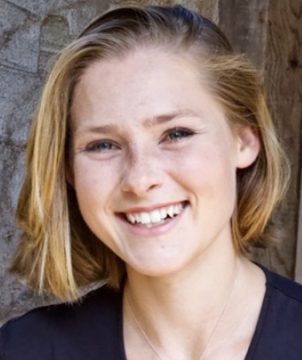
Micah Trautwein ’25
Faculty mentor Evadne G. Marcolini, MD
“Humans Behind the Uniforms: Using Narrative Ethics to Listen”
Trautwein is collecting the stories of non-medical hospital workers about their experience during the pandemic. As the crisis evolved, physicians and nurses were, for the most part, highlighted for their challenges, service, and empathy. Other healthcare workers who contributed significant personal effort and faced similar challenges were equally giving, but their message was not often heard. The perspective of these workers who are an essential part of the medical team is the focus of this research, allowing them to anonymously share their stories and express their thoughts, fears, and feelings as they worked alongside the medical team. This research uses the approach of narrative ethics, which uses storytelling to understand situations in which we find ourselves as either part of an evolving story or a narrative trajectory, which makes sense of a current situation and looks to the future.
Veronica Voronina ’25
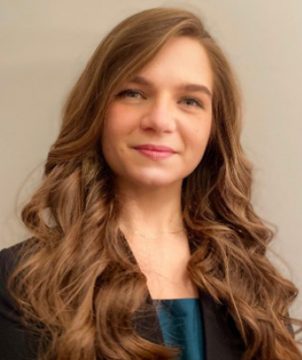
Faculty mentor Steven C. Schlozman, MD
"Caring for those who Care: Comparing the Accessibility and Utilization of Mental Health Care Resources by Healthcare Professionals in Urban vs. Rural Teaching Hospital Systems"
William A. Nelson, PhD, MDiv, professor of health care ethics at The Dartmouth Institute and of medical education, and community and family medicine at Geisel, directs the Olive and Joseph Swigart Ethics Fellowship Program. Nelson says the selected student and faculty teams conduct scholarly research regarding a specific clinical ethics issue to enhance patient care and ethics education. He adds that the yearlong fellowship program helps shape the professional path of recipients.
Past fellows, Amal Cheema ’24 and Colin McLeish ’23, for example, took markedly different approaches to exploring ethical questions, but both credit the fellowship with encouraging them to develop their thinking.
Cheema’s first foray into empirical bioethics research was through the Biomedical Ethics Research program at Mayo Clinic, where she studied genetic ethics and intersectional bioethics—intersectional bioethics seeks to understand how moral values and commitments are shared across complex identities. “And I’m still trying to figure this out,” she says.
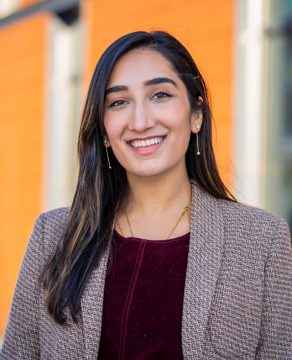
“The Swigart allowed me to revisit ethics research through the lens of being a medical student at Geisel,” she says. “And how, as a physician, I’ll be able to not only answer these questions, but also try to develop new research strategies to explore ethical concerns. It also motivated me to pursue a Master of Public Health degree, focusing on research methods, before graduating from medical school.”
Cheema says her studies allow her to further develop sound research studies and to think critically about how clinicians can make research studies more inclusive of ethics and values. And to also examine how healthcare can be delivered in a more inclusive and empowering manner, including understanding the convergence of social inequities and different identities patients have. “Their voices are often ignored, and our research needs to elevate those voices,” she says.
McLeish thinks “the field of medical ethics should focus on methodological and epistemological questions in the philosophy of medicine related to the structure and goals of medical practice itself.” Searching for ethics that could reinforce the methods and goals related to shared-decision making and patient-centered care, he turned to existentialism and the contribution of German philosopher Martin Heidegger to applied medicine and psychiatry—the ten years he spent giving lectures to physicians and medical students in Zollikon, Switzerland during the 1960s.
McLeish says Heidegger challenged physicians to see the limitations of acting only as scientific technicians and to open their perspectives beyond science and the technologies they use. By introducing medical trainees and physicians to existential philosophy, Heidegger sought to equip them with a language and logic that ensured patient autonomy remained central to the medical profession.
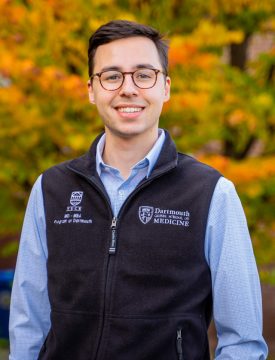
“I found the Swigart fellowship at exactly the right time. I had just taken on leadership of the Ethics Interest Group and was eager to develop my thinking about the origins of our medical ethics,” McLeish says. “I owe a special debt to the Swigart family for the gift of time and support for focused reading and writing. This fellowship let me explore the parts of medicine that challenge and excite me and gave me the chance to work closely with a faculty mentor to develop our research questions and methods.”
After his fellowship, McLeish was invited to the Dartmouth-Hitchcock Clinical Ethics Committee where he has since participated for the past two years.
For Cheema, “The Swigart was one of the things that motivated me to matriculate at Geisel,” she says. “It was a robust opportunity to continue a developing passion for ethics and to foster it as a medical student—my career could have easily moved in a different direction had I not been able to nurture this passion. Swigart is a wonderful opportunity for students who possess even a remote interest in ethics, to help that passion flourish.”